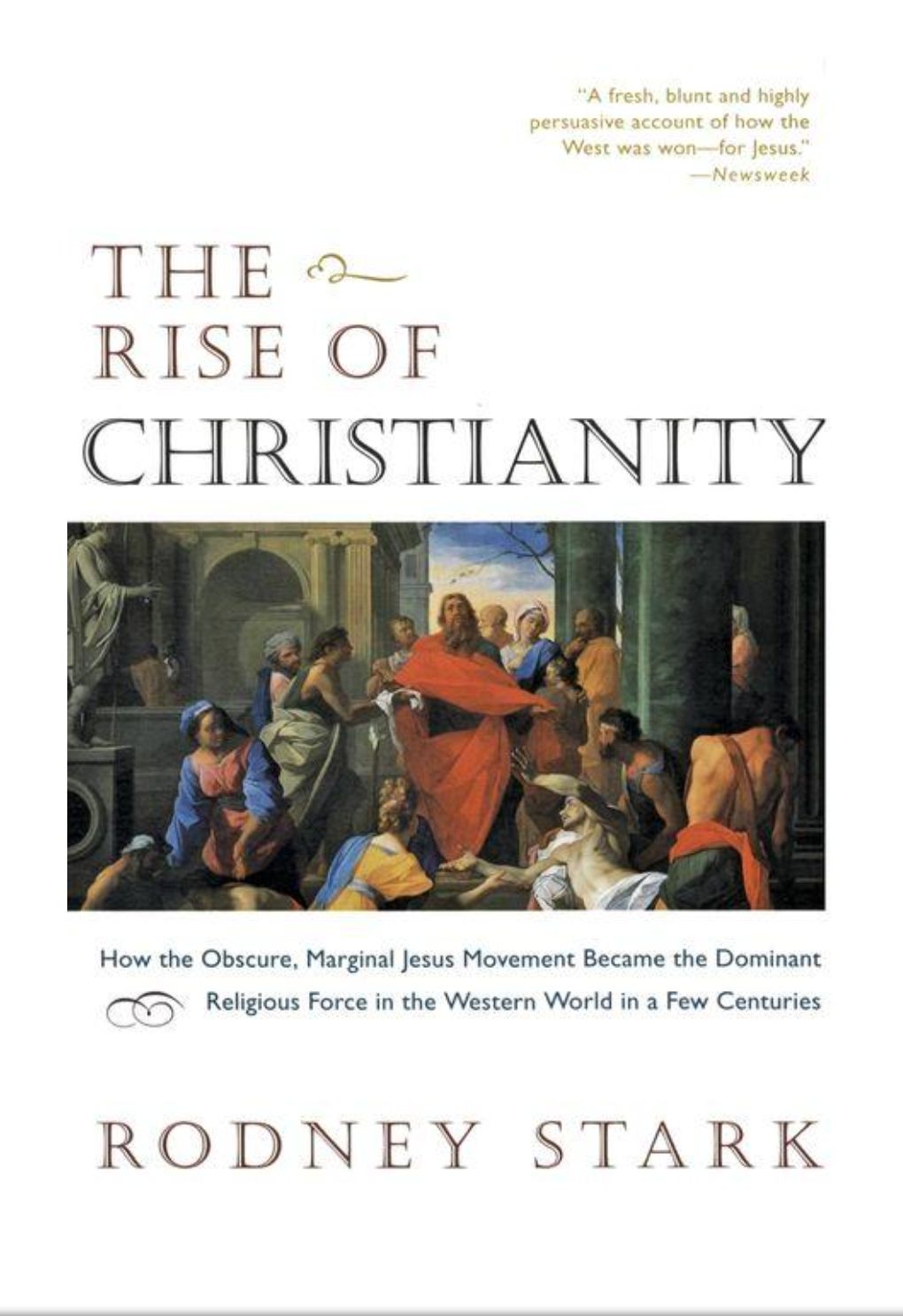The Rise of Christianity How the Obscure, Marginal Jesus Movement Became the Dominant Religious Force in the Western World in a Few Centuries
$16.99
Recommended in the Student Ministries Podcast, episode 8
The Rise of Christianity How the Obscure, Marginal Jesus Movement Became the Dominant Religious Force in the Western World in a Few Centuries
Product Details
UPC: 9780060677015
Brand: STARK, RODNEY
Annotation:
Sociologist Rodney Stark combines his expertise in social science with historical evidence to offer a provocative report. Stark finds that early Christianity attracted the privileged rather than the poor, and that Christianity's astounding dominance of the Western world arose from its offer of a better, more secure way of life. Index. 9 photos. Map. Tables.
Editorial Reviews
Review
"Stark finds that Christians prospered the old-fashioned way: by providing a better, happier and more secure way of life . . . In the end, Stark concludes, Christians 'revitalized' the Roman Empire." -- Kenneth Woodward, "Newsweek""Stark uses contemporary social-scientific data about why people join new religious movements and how religions recruit members to investigate the formative history of Christianity . . . ["The Rise of Christianity" will] generate spirited argument." -- "Publishers Weekly""Compelling reading . . . highly recommended." -- "Library Journal""This book raises, simply and brilliantly, just the kinds of questions anyone concerned with early Christianity should ask." -- "The Christian Century""Anyone who has puzzled over Christianity's rise to dominance in the Roman Empire . . . must read [this book]. Here is theoretical brashness combined with disarming common sense, a capacious curiosity, and a most uncommon ability to tell a complicated story in simple prose." -- Wayne Meeks, Yale University"A provocative, insightful, challenging account of the rise of Christianity." -- Andrew M. Greeley, National Opinion Research Center, University of Chicago
From the Publisher
"Compelling reading" (Library Journal) that is sure to "generate spirited argument" (Publishers Weekly) , this account of Christianity's remarkable growth within the Roman Empire is already the subject of much fanfare. "Anyone who has puzzled over Christianity's rise to dominance... must read it," says Yale University's Wayne A. Meeks, for The Rise of Christianity makes a compelling case for startling conclusions. Combining his expertise in social science with historical evidence and his insight into contemporary religion's appeal, Stark finds that early Christianity attracted the privileged rather than the poor, that most early converts were women or marginalized Jews -- and ultimately "that Christianity was a success because it proved those who joined it with a more appealing, more assuring, happier, and perhaps longer life" (Andrew M. Greely, University of Chicago).
